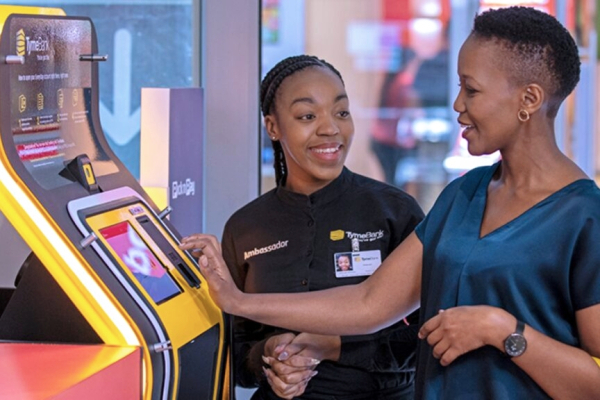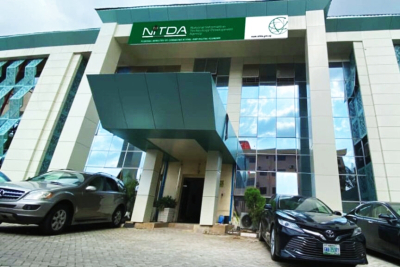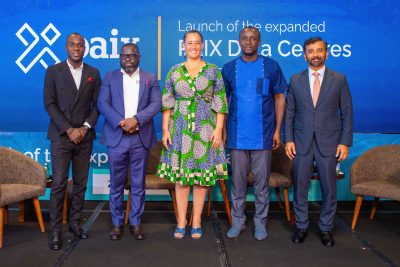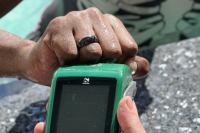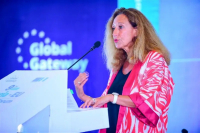In Africa, the fintech sector stands out as the most attractive. In 2022, Norfund decided to also position itself in this segment alongside strategic partners.
Norfund, a Norwegian state-owned investment fund, announced on Wednesday, July 3, a $20 million investment in a new fund by the British private equity firm Apis. Named Apis Growth Markets III, the fund will invest in high-growth, technology-focused financial services companies worldwide, with a particular emphasis on Africa and Asia.
"Apis’ expertise in payment solutions and embedded finance is profound. Seamless and cashless digital payments can significantly boost productivity and enhance digital inclusion, an area where Apis truly excels. In addition, we recognize the vital role of embedded finance in helping entrepreneurs and small businesses access the productive assets they need to thrive," said Kathy Chang, Investment Director at Norfund.
This investment comes at a time when funding for start-ups is declining globally. In Africa, funds raised by the continent's start-ups in the first half of this year fell by 56% compared to 2023, amounting to $530 million, according to data from Disrupt Africa. The scarcity of large deals over $100 million (funding winter) and the refocusing of investments by major global funds not primarily focused on Africa may explain this drop in funding.
Apis Growth Markets III plans to finance between 10 and 15 fintech start-ups. Amounts between $60 million and $70 million will be injected into various young companies for upcoming equity stakes.
Adoni Conrad Quenum
After completing an acceleration program at EtriLabs, the healthtech company launched into the African market and quickly distinguished itself on the continental tech scene. The company continues to steadily progress and harbors big dreams for the future
Rema, an e-health solution developed by a Beninese startup, enables doctors and medical students to collaborate remotely and receive continuous training. Based in Cotonou, the startup has been led by Sedric Degbo since 2019. Its mission is to improve the quality of healthcare decisions in Africa by ensuring the reliable and rapid transfer of medical and scientific knowledge and data among individual and organizational healthcare stakeholders.
The mobile application is available on both iOS and Android and has been downloaded over 10,000 times from Play Store. After downloading, users create an account by filling out a registration form and providing proof of their professional or student status. The registration is manually verified, as account creation is restricted to doctors and medical students (at least in their second year of study).
Once registered, users can access various services offered by the startup. These include Rema Learning, which allows users to attend live or recorded interactive medical conferences hosted by international experts and explore clinical cases shared by peers; Rema Jobs, which curates job opportunities for healthcare professionals in Africa; Rema Business, which enables targeting and engaging a specific audience within the community for various purposes (medical surveys, brand awareness, influencer campaigns, etc.); and Rema Pharma, a service for non-community members needing confidential consultations with a pharmacist for tailored advice. This service requires users to save the start-up's number and contact it via WhatsApp. The telepharmaceutical consultations often involve recommendations for preventive health practices, over-the-counter pharmaceuticals, or health center referrals.
Rema also functions as an online community and social network for medical professionals. Users can make posts to seek opinions from other doctors. "There are two posting modes on REMA: 'Quick Post' and 'Clinical Case'. In 'Quick Post' mode, you access a publishing interface with a text field and an image upload button. In 'Clinical Case' mode, the interface includes fields to describe your case, add images, and select specialty and anatomical tags to identify your case," explains the e-health platform.
With additional offices in Nouakchott, Mauritania; Dakar, Senegal; Lomé, Togo; and Douala, Cameroon, Rema aims to establish itself as the leading community for doctors and medical students on the continent. The start-up has garnered multiple awards, including the first prize for best start-up at inwiDays 2019 in Casablanca, Morocco; best digital start-up at FIDEA 2019; second prize for best African start-up at the AfricUp Pitch Challenge 2019 in Tunis, Tunisia; and an award for the best solutions from La Francophonie with the most impact during the peak of the health crisis in 2020.
Adoni Conrad Quenum
A trained accountant, he has extensive professional experience in the finance sector. As a serial entrepreneur, he currently serves as the CEO of a startup company specializing in carpooling.
Gabonese entrepreneur Jean-Arsène Houla-Houla is the founder and CEO of WebCars, a carpooling startup specializing in short-distance rides. Founded in 2020, WebCars started on WhatsApp and has since evolved into a platform that allows users to create carpooling groups with trusted individuals.
For passengers, WebCars provides the opportunity to plan their trips, avoid delays caused by public transportation shortages, and travel with peace of mind. For drivers, it serves as an additional source of income while transporting people they know.
In addition to his role at WebCars, Jean-Arsène Houla-Houla is a trainer at Em Gabon Business School, part of the Em Gabon-University group, specializing in management, administration, and economics. He also holds a position in trade finance at Euro Exim Bank.
Before creating WebCars, Jean-Arsène Houla-Houla founded Rehoboth Finance in 2016, where he served as CEO until 2022. In 2019, he launched Les Génies Solidaires (LGS), an investment fund that he currently leads.
Jean-Arsène Houla-Houla holds a general university studies degree (DEUG) in mathematics and physics from the University of Science and Technology of Masuku, obtained in 2006. In 2011, he earned a master's degree in accounting and finance from the National Institute of Management Sciences.
With a wealth of experience, Jean-Arsène Houla-Houla worked as a financial assistant at Citi bank in 2012. The following year, he became a financial analyst at JTC Consulting and later held the same position at Shell from 2013 to 2014. In 2021, he was appointed sales director at Router-switch.com, a global network equipment supplier, where he worked until 2022.
The establishment of research centres for emerging technologiesholds significant implications for African development. By focusing on AI, IoT, blockchain, and other cutting-edge technologies, these centres can propel Africa towards technological advancement, fostering innovation and competitiveness on the global stage.
Nigeria's National Information Technology Development Agency (NITDA) announced plans to establish research centres for emerging technologies across the country's six geopolitical zones. These centres will focus on AI, IoT, and blockchain. The initiative was outlined during the ongoing (July 2-4) IoT West Africa Conference in Lagos.
NITDA Director-General Kashifu Inuwa outlined the initiative, underscoring the agency's commitment to fostering a robust technology research ecosystem. Represented by NITDA’s Director of Corporate Planning and Strategy, Aristole Onumo, Inuwa highlighted the creation of a special-purpose vehicle to oversee these research areas. "We aim to encourage development and support entrepreneurs to bring their ideas to market," Onumo emphasized.
In addition to funding research, NITDA will support Nigerian startups developing products in these emerging technologies. According to the 2023 report ‘Growing the Nigerian Technology Ecosystem through the Capital Market’ by Multinational professional services network of firms PricewaterhouseCoopers (PwC), from 2015 to 2022, tech startups securing funding surged by 1087%, from 55 to 653, with annual equity funding increasing by 1673%, from US$277 million to US$4.9 billion, citing Partech. The "big four" markets, Nigeria inclusive received 73% of Africa's tech financing, with Nigerian startups receiving half of this funding, the report adds.
To accelerate the growth of the tech ecosystem, it is worth noting that the Nigerian government has created initiatives such as the Finance Act 2020 that reduces taxes for start-ups and the Nigerian Startup Act 2022 providing a framework for the development of the Nigerian technology and innovation ecosystem.
The IoT West Africa conference underscores Nigeria’s rapid technological development and the telecoms industry's pivotal role in driving economic growth and digital transformation across West Africa.
Hikmatu Bilali
Investment in Data Centres is vital for African development, addressing the significant digital infrastructure gap. It enables better connectivity, supports economic activities, and fosters a more inclusive digital economy.
PAIX Data Centres, a leading pan-African data centre operator, has expanded its Accra facility to 1.2 MW, boosting the region's digital economy. The expansion, launched July 2 in Accra, is backed by a $30 million investment from Africa50 to enhance connectivity and economic growth.
Raza Hasnani, Managing Director at Africa50, said, "Our $30 million investment in PAIX Data Centres is part of our strategy to accelerate Africa’s digital transformation and sustainability practices."
The upgraded Accra facility, now one of Ghana's largest, supports ISPs, cloud providers, and enterprises with improved digital infrastructure. Located strategically, the data centre offers low latency connectivity to major regional and international networks and subsea cables, enhancing efficiency and performance.
Africa50's investment aligns with its strategy to attract capital for green data centres, fibre optic networks, and smart cities. The Accra facility features advanced cooling, waste management systems, and increased use of renewable energy, ensuring optimal performance and sustainability.
The "State of Africa Data Center 2024" report by Xalam Analytics estimated that only 10% to 30% of effective data centre demand in sub-Saharan Africa is being met, highlighting a gap that PAIX Data Centres' expansion aims to address. This expansion aligns with findings from the International Finance Corporation (IFC) e-Conomy Africa 2020 report, which projects that Africa's internet economy, boosted by enhanced connectivity and investments in digital infrastructure, could contribute up to $180 billion to GDP by 2025.
Hikmatu Bilali
Colombian fintech Minka has expanded into the East African market to facilitate global purchases for Africans by enabling global merchants to accept local payments, such as mobile money or cash.
Minka's model employs in-house financial protocols to accelerate money transfers between banks by creating a common language for different payment systems, simplifying the reconciliation process.
VezoPay has introduced Africa’s first smart ring, revolutionizing contactless payments across the continent.
This ring offers quick, secure payments in just a second, connecting seamlessly to any terminal using advanced NFC tokenization to encrypt data, approved by Visa and Mastercard.
Agriculture is a crucial sector for the majority of African countries. Substantial investments are needed to improve yields and support growth.
On Tuesday, July 2, in Abuja, the European Union (EU), in partnership with the Economic Community of West African States (ECOWAS), unveiled a new digital platform aimed at boosting investments in Nigeria's agro-food sector. This initiative was presented on the sidelines of the 9th edition of the EU-Nigeria Business Forum.
Speaking on the significance of this innovation, Myriam Ferran, Deputy Director-General of the European Commission's Directorate for International Partnerships (INTPA), stated that it is "An agribusiness platform is a form of a digital agricultural platform that provides digital marketing, trading or investment space for commercial and transactional activities, interactions, communications, integrations and cooperation in the agri-food system and agro-industry between Nigerian and European SMEs."
The launch of this platform aligns with commitments made during the EU-Nigeria ministerial dialogue in November 2020. According to the agreement with the Nigerian government, it was decided to create an EU-Nigeria agro-industrial platform to bring together Nigerian and European agricultural and agri-food communities to promote trade, attract responsible investments, and foster business-to-business relationships, particularly for SMEs.
In Nigeria, agriculture holds a significant position in the economy, being the second most important activity after the oil sector. According to data platform Statista, the agricultural sector generated about 21% of the country's gross domestic product (GDP) in the second quarter of 2023. However, despite its substantial contribution, Nigeria's agricultural sector faces numerous challenges, including a lack of investments, outdated farming systems, and insufficient supply to meet the growing population and increasing food demand.
The new platform is expected to address these challenges, increase private investments in the country's agro-industrial sector, and strengthen links and interactions between agro-industrial actors in Nigeria and Europe.
Samira Njoya
5G, the latest generation of cellular networks, is steadily making its way across Africa, promising faster speeds and lower latency compared to previous generations. Tunisia is poised to become the next country to offer 5G services to its citizens and businesses.
The Tunisian Ministry of Communication Technologies announced on Sunday, June 30, the launch of a call for tenders for the allocation of 5G operating licenses. Telecom operators interested in providing commercial fifth-generation technology in Tunisia must submit their applications to the ministry between July 3 and September 2.
The call for tenders follows the approval of the 5G launch roadmap by the government on June 13. According to this roadmap, each Tunisian telecom operator will be entitled to 5 MHz duplex in the 700 MHz band and 100 MHz (TDD) in the 3.5 GHz band. Three blocks of 20 MHz will be available upon request by the operators. Additional 5G frequency bands will be announced in later deployment phases. The license will be valid for 15 years, with its cost yet to be disclosed.
According to the ministry, the deployment of 5G is part of "the Tunisian state's strategy for the digital development of the national territory, aiming to develop digital infrastructure and generalize very high-speed coverage throughout the national territory." The government also aims to accelerate the digitization of the administration, secure the national cyberspace, ensure digital sovereignty, and establish a climate of digital trust essential for the realization of digitization projects.
5G is expected to facilitate new applications of mobile technology. In a public consultation on ultra-high-speed broadband conducted by the National Telecommunications Authority (INT) in 2021, the Internet service provider Conect Tunisia indicated that the performance of 5G technology could support the development of the following use cases: IoT (Industry 4.0, Agriculture 3.0, Smart Homes, Smart Cities), video streaming in automotive vehicles, data exchanges during major sporting and cultural events, self-guided vehicles, and online gaming.
Isaac K. Kassouwi
Cybersecurity has become a significant concern for African countries in recent years. As African nations actively participate in the global technological revolution, they have also become increasingly vulnerable to cyber threats. The ongoing digital transformation across the continent has exposed the weaknesses and vulnerabilities present in Africa's cyberspace.
On Monday, July 1, Russian multinational information security company Kaspersky offered four recommendations to protect against online fraudsters in West Africa (commonly known as "brouteurs"). The recommendations include generating complex passwords, being wary of suspicious SMS messages, looking for the padlock symbol on websites, and downloading applications from reliable sources.
These recommendations follow a study conducted by the Russian cybersecurity firm in January 2024, surveying 200 people on mobile phone usage in West Africa. The study highlights the growing threats posed by "brouteurs," whose activities severely undermine digital trust and security in the region. Their scams range from social media impersonation, fake loans and scholarships, online purchases, and counterfeiting, to contests and competitions, as well as health and beauty scams, webcam schemes, and remote access frauds.
"With increasing Internet access in West Africa, online security is becoming a concern for local populations. In Côte d'Ivoire and Senegal, 46% of the population connects to the Internet daily, approximately 9.6 million users. [...] 50.5% of Ivorians and Senegalese use their mobile phones daily for professional and personal needs. Social networks are used by 87.7% of users, followed by video calls (68.1%) and geolocation applications (60.8%)," noted Kaspersky.
According to Kaspersky, increased connectivity exposes users to various cybercrime risks, including romance scams that exploit social media and communication platforms. These scams caused over $1.3 billion in global losses between 2017 and 2022, with an average loss of $4,400 per victim, according to Interpol.
In Africa, cybersecurity issues are still rarely addressed at the national level due to a lack of skills or infrastructure. According to the 2020 edition of the "Global Cybersecurity Index" report published by the International Telecommunication Union, the cybersecurity indices of Côte d'Ivoire and Senegal were 67.82 (11th place) and 35.85 (18th place) respectively. Several countries in the region, such as Mali (10.14), Niger (11.36), and Guinea (20.53), are more vulnerable.
However, authorities in various countries are increasingly taking measures to secure their cyberspace. They are implementing national cybersecurity strategies, establishing national computer incident response teams, and joining conventions such as the Malabo Convention on Cybersecurity and Personal Data Protection and the Budapest Convention on Cybercrime.
Adoni Conrad Quenum
More...
He is an expert in artificial intelligence (AI) and machine learning. Leveraging his knowledge and skills in these cutting-edge technologies, he assists farmers in optimizing their operations and boosting their profitability.
Adamou Nchange Kouotou, a Cameroonian computer scientist and entrepreneur, is the founder and CEO of Agrix Tech, a tech startup he established in 2018 that automates the process of analyzing technical and financial risks for small-scale farmers.
Agrix Tech provides farmers with comprehensive solutions, including financing, agricultural inputs, advice, insurance, and market access. The company optimizes and monitors farms for high yields using machine learning and satellite data, thereby facilitating better credit decisions for financial institutions. In 2019, the company received the President's Special Award in the digital sector.
"At Agrix Tech, we develop artificial intelligence that instantly equips small, on-the-job trained farmers with skills to prevent, detect, and treat crop diseases. Thus, small farmers, who make up 80% of farmers in Africa, can increase their farm yields and consequently their income," explained Adamou Nchange Kouotou in 2019.
Before founding Agrix Tech, Adamou Nchange Kouotou co-founded the IT company Nabla in 2011. He graduated from the University of Yaoundé 1 with a master's degree in physics in 2006 and a master's degree in telecommunication engineering in 2008. He also holds an MBA obtained in 2019 from the European School of Management and Technology (ESMT) in Berlin, Germany.
His professional career began in 2009 at ZTE Corporation as an after-sales engineer. In 2010, he joined Huawei Cameroon as a field maintenance manager. In 2013, he became a Service Level Agreement (SLA) manager at IHS Towers, a communications infrastructure developer. From 2019 to 2023, he served as the regional head of governance and compliance at Allianz Africa, a non-banking financial services company.
Melchior Koba
He leverages digital technology to enhance business efficiency. Through his company, Itwe Solutions, he has already supported numerous projects with dozens of clients satisfied.
Namureba Abel, a Ugandan accountant and technology entrepreneur, is the founder and CEO of Itwe Solutions, an IT company that helps businesses grow through digital technology. Founded in 2022, Itwe Solutions specializes in artificial intelligence, cloud computing, the Internet of Things, and blockchain to enhance the efficiency, transparency, and security of its clients. The company provides advice and guidance on digital transformation and innovation.
Itwe Solutions assists businesses in adopting digital technologies and improving their operational efficiency. It utilizes data analytics tools to provide valuable insights, enabling companies to make better decisions and improve their performance. The startup has already completed several projects and helped around fifty clients.
Namureba Abel graduated from Uganda Christian University in 2018 with a bachelor's degree in accounting and finance. He began his professional career in 2017 as an intern at the Uganda Revenue Authority (URA). In 2019, he became a junior associate at Standard Chartered Bank Uganda, while also volunteering for the cryptocurrency exchange platform Binance. Later that year, he joined the fintech startup Yellow Card App, where he worked as a country director until February 2024. In 2020, he also took on the role of customer support and compliance officer at URA.
Melchior Koba
He aims to revolutionize the job market in his country and across Africa. By facilitating the connection between service providers and clients, he significantly simplifies the hiring process.
Julius David Wambogo is a trained journalist, communication expert, and entrepreneur from Tanzania. He is the founder of Mchongoo, a company offering various job opportunities for Africans.
Founded in 2021, Mchongoo connects service providers with job seekers in Tanzania. It offers several services and tools to support its users. For instance, it provides a lead generation tool that directly connects service providers with potential clients, simplifying the hiring process.
Mchongoo also offers a booking and scheduling system. This system allows users to make appointments, receive confirmations and automated reminders, and modify bookings. The platform's geolocation services help users find nearby providers, ensuring quick access to services, especially in emergencies.
For service requests, Mchongoo utilizes multiple communication channels. Users can contact providers via SMS, phone calls, WhatsApp, Instagram, and Facebook.
Julius David Wambogo also serves as the head of communication for the Enabling Africa Trade Forum (EATF), an African trade development organization. Additionally, he is the national operations director of Zanite Digital, an agency specializing in social media management and digital marketing.
The entrepreneur holds a higher national diploma in journalism from the School of Journalism in Dar es Salaam. He also studied graphic design at the University of Dar es Salaam.
Before becoming an entrepreneur, he worked as a brand manager and radio presenter at Tanzania Broadcasting Corporation (TBC) from 2016 to 2019. From 2019 to 2021, he served as the head of public relations for Future Team Tanzania.
Melchior Koba
Senegal's Digital Strategic Development Plan hinges on the digitalization of its government administration. However, despite significant investments in this initiative, the anticipated results have not yet materialized.
Senegal is lagging behind in its objectives for the digitization of public services, with only 130 out of 900 procedures completed, a rate of 13.4%, according to Isidore Diouf, the CEO of public digitization agency Sénégal Numérique (SENUM SA). The official presented the figure on June 28, during a discussion on digital technology at a business conference.
Senegal began digitizing its public administrative services in 2017. In 2022, SENUM signed an agreement with 19 municipalities in Dakar to digitize civil status documents. By July 2023, XOF8 billion (13 million USD) had been invested to implement the 2023-2027 Digital Master Plan for Justice, aimed at creating a more accessible digital judicial service. The health sector has also received significant attention.
Continuing this trend, in November, the Senegalese Ministry of Communication, Telecommunications, and Digital Economy, in partnership with the German International Cooperation Agency (GIZ), unveiled GovStack, a new platform designed to handle over 800 administrative procedures.
While the reasons for this low digitization rate have not been clearly stated despite substantial investments, it is clear that many challenges remain. These include drafting regulatory texts to establish a governance framework for digitization and implementing an e-government strategy to accelerate the process. Support from all stakeholders and collective commitment are essential for successful digitization.
It should also be noted that in Senegal, some priority services are already online, including those in urban planning, tourism, justice, education, labor and social security, public service, interior, sports, consular civil status, and the environment
Samira Njoya


